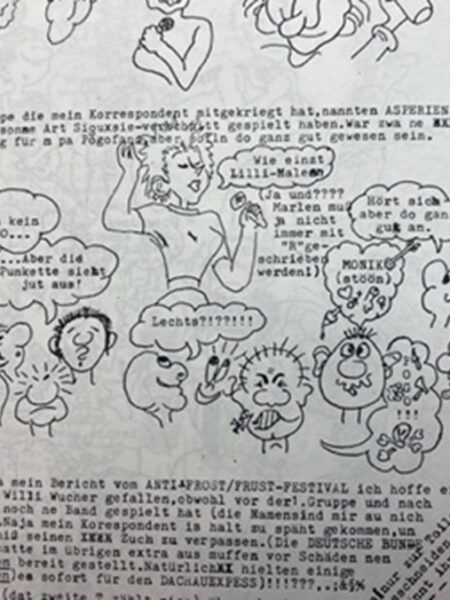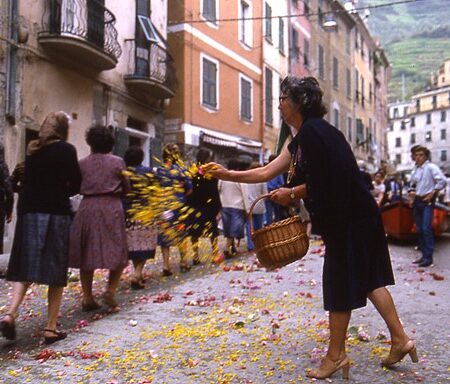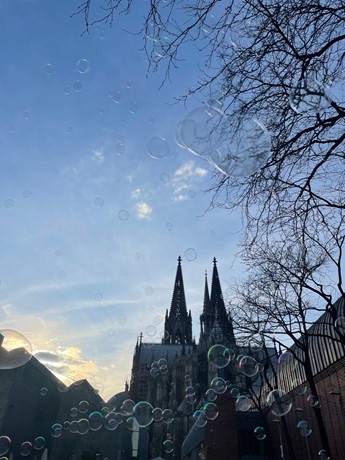INTRODUCTION
In a country like Nigeria where drama as a mode of fiction has been a dominant mode of cultural expression, it is worthwhile exploring this question of the dramatic reconstruction of history in Nigerian theatre; in order to better understand the way in which dramas affects the citizens of the country, by introducing and underlying the ideas, values, and interpretations of history. That is to say, the importance of drama goes beyond the realm of culture since drama and literature have been known to depict social, economic and political change while still being used as a source of entertainment. I would argue that the effect of drama on people is outstanding as it not only entertains but informs and usually achieves the aim the dramatists intends for it to achieve on the minds of the reader or spectator. For instance, in an article written by a book reviewer, Ubaji Isiaka Abubakar Eazy, referring to plays written by a famous Nigerian playwright and theatre director, Ola Rotimi, explains that Rotimi’s, “… (His) ability to rework history and breathe life into it on stage leaves me with nothing but admiration”[i]. In other words, Ola Rotimi has been able to portray historical events through his plays which make the events seem more alive to the audience, bringing them face-to-face with Nigerian history.
Therefore, this project aims to understand how the history has been portrayed through literature. Historical events have been recounted in the history books, newspapers and other sources, but they have also been expressed through dramatic performances and literary drama. It is important to note that the Nigerian theatre has developed over time, even more so after Nigerian independence in 1960. Therefore, the main question the project addresses is: to what extent has Nigerian theatre been able to offer a reconstruction of Nigerian history?
ORIGIN OF LITERARY DRAMA IN NIGERIA
Nigerian drama originated from the various traditional, religious and functional rituals found in virtually every Nigerian community[ii]. According to Elo Ibagere of the Department of Theatre Arts, Delta State University, Abraka, Nigeria, there was an evolutionary transition from rituals to drama and into the modern era of Nigerian theatre and drama. Modern drama began with the return of freed slaves in 1839. These freed slaves brought Western and Europen forms of concerts into the country culminating in the formation of ‘The Academy’ (1866) by Samuel Ajayi Crowther and others, a social and cultural center where music and drama were performed. The entry of the dramatist, Hubert Ogunde into the scene in 1944 changed the landscape of Nigerian theatre. He produced plays which highlighted the country’s economic and social dilemma during the colonial period which the people could relate to. Before Ogunde, drama was largely for an elite audience, most of whom attained western education. Some of these plays by Ogunde include Worse than Crime (1945) and Strike and Hunger (1945). These plays were not written but acted out in the Yoruba language. Nigerian literary drama, which refers to scripted plays, can be traced back to the first play written by John Ene Henshaw, This is Our Chance (1956). This was followed by the introduction of drama as a course in the University of Ibadan in 1957. Henshaw’s pioneering upsurge was followed by Wole Soyinka’s debut as a playwright in 1958 and from then on, various playwrights began to emerge. The creativity of the Ibadan School of Drama and encouragement derived from the attainment of political independence in 1960 promoted seriousness in writing and led to increased fame for modern Nigerian drama[iii]
POST-COLONIAL INTERPRETATION OF THE BRITISH PUNITIVE EXPEDITION
The fall of the Benin kingdom (1897) to the British is a very important aspect of the history of the geographical location that was later to become Nigeria. This has been dramatically depicted and two Nigerian dramas are thoroughly analysed in this project. While the context of the two plays examined is of pre-colonial history, the plays show a post-colonial interpretation of the event; an interpretation of what took place in that British expedition to Benin and in the perspective of Nigerians. Ola Rotimi’s Ovonramwen Nogbaisi(1974) and Ahmed Yerima’s The Trial of Oba Ovonramwen(1998) both describe the event of the British punitive expedition as well as the conquest and occupation of the Benin kingdom which followed the dethronement of the king of Benin kingdom, Oba Ovonramwen in 1897. There were several points of divergence in the two plays which again brings to light the importance of interpretation of historical events. Dr Ifeanyi Ugwu, of the Department of Theatre and Film Studies, University of Nigeria, Nsukka, captures this explicitly in the deconstructionist reading of Ola Rotimi’s historical play and exploring Ahmed Yerima’s play as a textual reflection of the destruction. This means that Dr Ugwu read and compared both plays, using Yerima’s play as a reflection of Rotimi’s interpretation of the same event. By reading both plays, Dr Ugwu was able to offer a comparison, highlighting the differences in interpretation. Using the example of the history of the fall of Benin kingdom in the 19th century, he stated that different dramatists may present diverse pictures of a given historical event[iv]. At the time Rotimi published his play in 1974, it was over seventy years since the fall of Benin kingdom to the British.
To the question of the accuracy of the portrayal of historical events by playwrights, an interview with Professor Ahmed Yerima revealed that it is impossible for the average Nigerian to depend on Nigerian drama for an accurate depiction of historical events. As he explained, historical playwrights have to be subjective because it depends on the point that the writer is trying to drive across to the reader or audience. At this point, it becomes a subjective history as there is no way for the playwright to write a balanced story based on history[v]. Citing The Trials of Oba Ovonramwen as an example, Yerima recounts how he was asked by Oba Erediauwa I, the king of Benin (1979-2016) and the Federal Government of Nigeria to write a play which justified the event. As the great-great-grandson of Oba Ovonramwen, he wanted to invite the British ambassador representing Acting Consul-General Philips and his men killed in Benin, to the opening performance of the play. With this knowledge, Yerima had to write a “delicate” play that would bring a balance in which both parties will find a sense of pride, accept the incidence as an unfortunate incident and “forgive each other”[vi]. This background to the play tells a lot about how a historical play turns out to be just what the writer intends.

Through this play, Yerima agrees that he was able to give a post-colonial interpretation of the British punitive expedition into Benin-a pre-colonial event. As Yerima pointed out, historical plays are more about the portrayal of characters and portrayal of the story because a playwright must first have a thematic intention; he selects historical material to use to justify his position as a storyteller. Therefore, what comes first to the playwright is not the portrayal of the true historical event but his interpretation of the history. In this sense, Nigerian drama offers a reconstruction of Nigerian history as the playwright “tinkles” with history and makes it contemporary so that the audience will identify themselves in it, understand the history and then learn from it.
CONCLUSION
The analysis of various sources gives the historian the ability to offer a reconstruction of the past based on facts. In the same way, history undergoes reconstruction through science, images[vii], archeological findings[viii], linguistic evidence[ix] and literature[x]. In my project, I focused on the reconstruction of history in literature. Nigerian theatre therefore does offer a reconstruction of Nigerian history in the perspective of Nigerians through literature. With Rotimi’s and Yerima’s portrayal of the British punitive expedition into Benin in 1897, a different perspective to the event was given to Nigerians, giving an impression of what the king, Oba Ovonramwen and the Benin people experienced during the expedition, leaving in its wake a better understanding of the expedition in the audience. As noted above, this could be considered as the thematic intention of the authors to reconstruct the history of the Benin people. This thematic intention best explains historical plays as interpretations of historical events and not always an accurate portrayal of historical events. For instance, in an interview granted to Felicia Daniel by Dr. John Iwuh, the author of Birthright (2016), the author recounted his experiences as a child during the Nigerian civil war of 1965 which is what the play, Birthright, is about and those experiences informed the play’s expression of the impacts of the war on the people of the southeastern part of Nigeria. Therefore, while Ola Rotimi and other Nigerian historical playwrights bring history to life on stage as Ubaji Isiaka believes, their plays are only their own interpretations of the historical events that they attempt to portray. There is always a subtextual question to the historical accuracy of the plays because the playwrights usually have a thematic intent to pursue, which is why it is more accurate to describe the Nigerian theatre as offering a dramatic reconstruction of history. Nigerian theatre, therefore, has been able to offer a reconstruction of Nigerian history by giving interpretations of historical events.
[i]Ubaji Isiaka Abubakar Eazy, ‘Ola Rotimi’s OvonramwenNogbaisi: When History Becomes Drama’, 2017
[ii] Elo Ibagere, ‘Nigerian Theatre and Drama Evolution and Relevance in a Modern Nigeria’
[iii] Roy-Omoni, A. (2020) ‘Modern Nigerian Drama and its Generation of Playwrights’, Tropical Journal of Arts and Humanities 2(2), 8-17
[iv]Ifeanyi Ugwu, ‘Deconstructionist Interpretations of Rotimi’s Ovonramwen Nogbaisi in Yerima’s The Trials of Oba Ovonramwen
[v]Oral interview with Ahmed Yerima on 3rd July, 2023
[vi] Oral interview with Ahmed Yerima on 3rd July, 2023
[vii] Dursun Dilek, ‘The Reconstruction of the Past through Images: An Iconographic Analysis on the Historical Imagination Usage Skills of Primary School Pupils’
[viii] Ayoade, J. (1972) ‘Archeology and Historical Reconsruction: The Nigerian Case. African Issues, 2(3), 55-57. Doi: 10.2307/1166433
[ix] Vansina, J. (1999) ‘Linguistic Evidence and Historical Reconstruction’, The Journal of African History, Vol 40(3), 469-473. Doi: 10.1017/S0021853799007598
[x] Ana Raquel Fernandes, ‘ History through Fiction’ in ‘Narrative Strategies in the Reconstruction of History’, Cambridge Scholars Publishing, 2018
ORAL INTERVIEW
Interview conducted with Prof. Ahmed Yerima on 3rd July, 2023
BIBLIOGRAPHY
Alex, R.-O. (2020). Modern Nigerian Drama and its Generation of Playwrights. Tropical Journal of Arts and Humanities , 8-17.
Ayoade, J. A. (1972). Archeology and Historical Reconstruction: The Nigerian Case. African Issues , 55-57.
Dilek, D. (2009). The Reconstruction of the Past through Images. Retrieved July 14, 2023, from Semantic Scholar: https://www.semanticscholar.org
Eazy, U. I. (2017, October 29). Ola Rotimi’s Ovonramwen Nogbaisi: When History Becomes Drama. Retrieved July 8, 2023, from Medium: https://medium.com
Fernandes, A. R. (2018). History Through Fiction. In A. R. Fernandes, Narrative Srategies in the Reconstruction of History (pp. 1-4). Cambridge Scholars Publishing.
Ibagere, E. (2009). Nigerian Theatre and Drama Evolution and Relevance in Nigeria. In J. O. Bethel C. Uweru, Readings in General Studies: Nigeria Peoples and Culture (pp. 207-215). Abraka: Delta State University Printing Press.
Ugwu, I. (2013). Deconstructionist Interpretations of Rotimi’s Ovonramwen Nogbaisi in Yerima’s The Trials of Oba Ovonramwen. IISTE Research on Humanities and Social Sciences , 86-93.
Vansina, J. (1999). Linguistic Evidence and Historical Reconstruction. The Journal of African History , 469-473.








This is great. Keep it up, Dera.